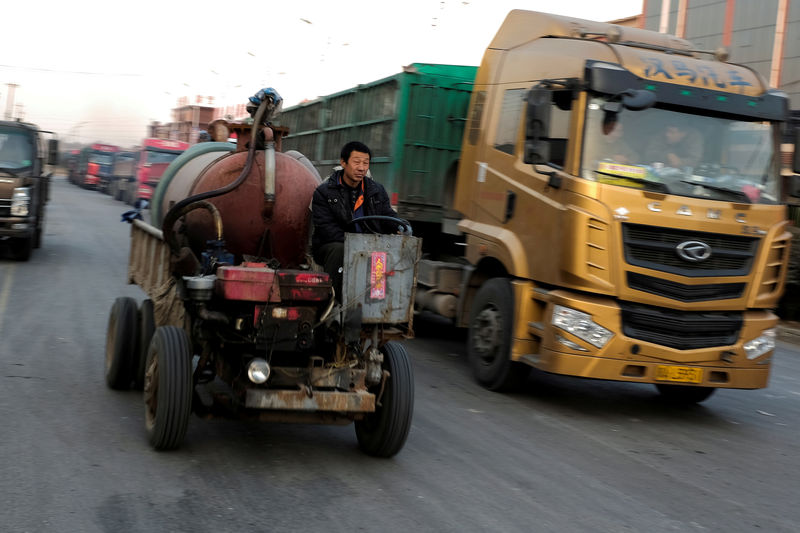(This February 26th story corrects to say February is seen as the 19th straight month of expansion, not 20th)
BEIJING (Reuters) - China's manufacturing sector likely posted another month of relatively solid growth in February, despite long Lunar New Year
holidays and a tough pollution crackdown which disrupted factory operations.
The official manufacturing Purchasing Managers' Index (PMI)is expected to have dipped only slightly to 51.2 in February from January's 51.3, according to a median forecast of 29 economists in a Reuters poll.
That would mark the 19th straight month of expansion for China's manufacturers, and reinforce consensus views that the world's second-largest economy will only see a modest slowdown in growth this year. The 50-mark divides expansion from contraction on a monthly basis.
But like much of China's data early in a new year, the trends may be distorted by the timing of the week-long Lunar New Year holidays, which fell in February this year but January in 2017.
Many factories and offices start to scale back operations ahead of time before shutting for the entire holiday or longer, while some manufacturers front-load shipments or replenish inventories ahead of the break.
Some Chinese steel mills, in particular, are believed to be aggressively building up inventories of raw materials like iron ore so they can spring back to full production once winter smog restrictions are lifted in coming weeks.
"With external demand holding up, inflation mild, and labor cost stable, China's manufacturing sector is projected to be in relatively good health this year," said Zhang Yi, chief economist at Capital Securities in Beijing.
"However, days are gone when the manufacturing sector had expanded rapidly. The PMI these days is only likely to fluctuate between 51 and 52."
China's trade machine kicked up a gear in January after stumbling the previous month, with exports and imports both growing much more than expected, pointing to a strong start to the year for global demand.
Economists polled by Reuters expected China's economic growth will moderate to around 6.5 percent this year from a forecast-beating 6.9 percent in 2017 as the property market cools and as authorities press ahead with a clamp down on riskier financial activity that is driving up borrowing costs.
The corporate lending rate climbed 49 basis points in the first three quarters last year to 5.76 percent, before falling 2 basis points in September-December.
Economists expect a private survey on China's factory activity later this week will show a similar easing trend as the official reading, after activity in January expanded at multimonth highs.
They predict the private Caixin/Markit Manufacturing Purchasing Managers' index (PMI) will be 51.3 in February versus 51.5 the previous month.
The private survey tends to focus on small and mid-sized firms, which have not benefited as much from a year-long, state-led construction boom as large, government-owned industrial heavyweights.
The official PMI survey will be published on Feb. 28, along with a similar official survey covering the services sector.

The private Caixin manufacturing PMI will be published on March 1, with the Caixin services PMI to be released on March 5.